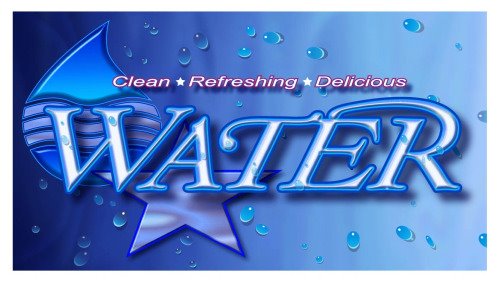Refill, Not Landfill
The heated argument of the day is whether to drink tap water from reusable bottles or "packaged" water from commercial sources. We believe the answer is nuanced and actually falls somewhere in between. This blog is dedicated to the discussion of our health as it relates to drinking water, and the quality issues associated with our water sources.
Friday, June 12, 2009
Contamination: The Stew Effect
This is a follow up to the prior post. These excerpts highlight the complexity of the pharmaceutical contaminant issue. We have the research to prove these compounds are in our water supplies. We don't know at what concentrations they become hazardous to human health. But, perhaps more to the point, we also don't know what potential threats are imposed by these pharmaceuticals in combination.
Many people, including some who think of themselves as environmentally savvy, have a false sense of security about our public water supplies. The fact is most municipal systems were designed to process water for the treatment of pathogens. They were never designed to monitor or treat these contaminants. By the time industrial processors react to the scientific data many millions of people will have already been impacted.
Many people, including some who think of themselves as environmentally savvy, have a false sense of security about our public water supplies. The fact is most municipal systems were designed to process water for the treatment of pathogens. They were never designed to monitor or treat these contaminants. By the time industrial processors react to the scientific data many millions of people will have already been impacted.
With such contaminants proving elusive to municipal filtration systems, the burden of protection often lies with the end user. But getting traces of birth control and other drugs out of your tap water isn’t so easy. Of the many different kinds of in-home water filtration systems available today, only those employing reverse osmosis have been shown to filter out some drugs. Some makers of activated carbon water filters claim their products catch pharmaceuticals, but independent research has not verified such claims. |
Wednesday, June 10, 2009
Pollution experts: Save fish from drugs in wate
The content below is excerpted from an article post by the associated press.
It's true, scientists don't yet know the effects of pharmaceutical contamination of drinking water on humans. However, here's the problem, the type of research necessary to account for all the variables; including what effects result from pharmaceutical contaminant "cocktails" takes many years of controlled testing. By the time results confirm highly plausible suspicions it'll be too late to prevent harm to many millions of affected people. The other area of concern is that most municipal water systems do not test for these types of contaminants so there is no assurance potentially harmful pharmaceuticals are not being dispensed from taps across America.
It's true, scientists don't yet know the effects of pharmaceutical contamination of drinking water on humans. However, here's the problem, the type of research necessary to account for all the variables; including what effects result from pharmaceutical contaminant "cocktails" takes many years of controlled testing. By the time results confirm highly plausible suspicions it'll be too late to prevent harm to many millions of affected people. The other area of concern is that most municipal water systems do not test for these types of contaminants so there is no assurance potentially harmful pharmaceuticals are not being dispensed from taps across America.
|
Wednesday, June 3, 2009
Starting Point

This blog is the creation of the team at Aqua Star International, manufacturers of commercial drinking water vending products.
The subject of drinking water is complex, vitally important to individual and society alike and extremely confusing.
- How much do we need each day?
- How safe is tap water?
- Is the problem of chemicals leaching from my single-serve plastic water bottle one of concern?
- How effective are those filters that attach to a faucet or are embedded in a storage container?
- Just how serious a threat is pharmaceutical contamination to drinking water supplies?
If you have an interest in any of the topics listed above from a personal, professional or simply an academic perspective, we invite you to join in as we highlight each of these issues in future posts.
Subscribe to:
Posts (Atom)




